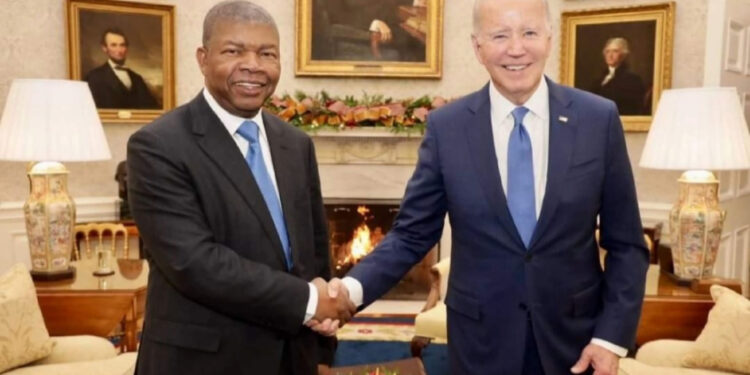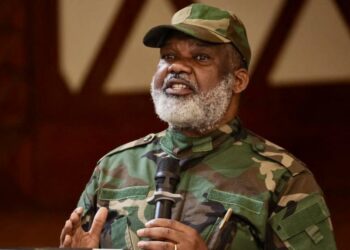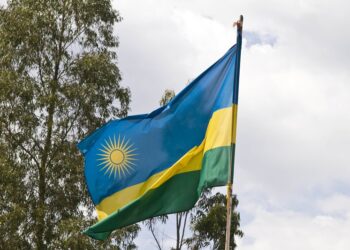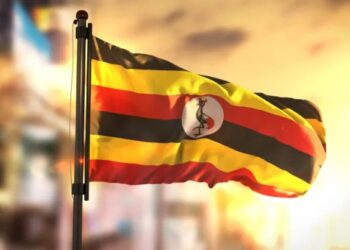Most African countries gained independence in the early 1960s and have struggled to find their place in an international system where the most significant rules of the game were defined at the end of World War II without their having a voice. While Africa was a theater of ideological war between the West and the East during the Cold War, today it is still a place of confrontation between the industrial powers, who compete fiercely for control of raw materials, materials the rest of the world increasingly depends on. In distinction, the region’s heavy dependence on imports for key inputs, including seeds and fertilizer, as well as for specific cereals, means that global trade disruptions can have seismic repercussions. Moreover, Africa needs at least $100 billion per annum to plug its infrastructure finance deficit and another $50 billion to invest in climate adaptation, according to estimates by the African Development Bank. However, Africa’s conflict context is changing. There are also shifts in the geopolitical power of particular countries and a weakening of African intergovernmental institutions. There is, for example, a broadening of the scope of and a deepening of the intensity of violent extremism on the continent.
So far, the world is keenly aware of Africa’s importance, spurring countries to expand their political, economic, and security engagement with African states. This presents new opportunities and challenges for U.S. interests in the region. Allies and partners in Europe, the Middle East, and the Indo-Pacific increasingly regard Africa as integral to their national security, and many are committed to working with the United States to advance high standards, values-driven, and transparent investments, as well as address political and security crises. The People’s Republic of China (PRC), by contrast, sees the region as an important arena to challenge the rules-based international order, advance its own narrow commercial and geopolitical interests, undermine transparency and openness, and weaken U.S. relations with African peoples and governments. While Russia views the region as a permissive environment for parastatals and private military companies, often fomenting instability for strategic and financial benefit. Also, Russia uses its security and economic ties, as well as disinformation, to undercut Africans’ principled opposition to Russia’s further invasion of Ukraine and related human rights abuses. Subsequently, Russia has capitalized on growing anti-French sentiment, especially in former Francophone countries, to assert its influence in Africa. It has supported the formation of the Sahel Alliance, a new security coalition between Burkina Faso, Mali, and Niger.
Still, the African continent, with its fifty-four countries and over a billion people, will play a growing role in shaping the international order and will affect the role and vitality of US leadership therein. African countries are important to US efforts to: (1) advance vital interests in international organizations and uphold sanctions regimes; (2) promote American values overseas; and (3) exert global influence and leadership. ‘ ‘Countries like Nigeria are not just global leaders; they are increasingly prominent around the world beyond this region, and they’re deserving of a prominent seat wherever the most consequential issues are discussed. Institutions like the African Union, ECOWAS, SADC, and IGAD should play a larger role, and they should have a greater voice in global debates. The United States firmly believes that it’s time to stop treating Africa as a subject of geopolitics and start treating it as the major geopolitical player it has become.’’ This excerpt was noted in a speech in Abuja by Secretary of State Antony J. Blinken on November 19, 2021, titled ‘‘The United States and Africa: Building a 21st Century Partnership.’’
Is US Foreign Policy Benefiting Africa or Holding It Back?
There is no doubt that the world is transforming an immediate post-Cold War euphoria of American triumphalism and liberal democratic hubris into a more complicated picture. The return of wars and other conflicts among major powers, especially with respect to the rising capabilities and aspirations of China and Russia, creates uncertainty about the United States’ political objectives and military readiness in Europe and Asia. In addition, unprecedented challenges in climate change and pandemics; efforts to dethrone the dollar as the benchmark currency for international transactions; mass migration in unprecedented numbers; and new technologies for cyberwar, artificial intelligence, and the military uses of space all contribute to a possible bow wave of political regime destabilization and military planning vexation. Today’s certainties for politicians and their military advisors are tomorrow’s guesswork. Apparently, the United States was built on the backs of Africans and their descendants, and the African diaspora continues to play an important role in strengthening people-to-people ties across the Atlantic. Of the more than 46.8 million African Americans, as of 2018, there were about 2.4 million foreign-born Africans in the United States, a dramatic rise from even 2000, when there were fewer than one million. About 40 percent of America’s African immigrants hold at least a bachelor’s degree, a rate higher than that of the US-born population. The economic strength of the African diaspora is further seen in financial flows back to the continent.
Besides, the Biden administration has taken an important first step by involving people of African descent in US policymaking through various administration appointments, including as co-leader for international development on the transition team, the acting director of the US Trade and Development Agency (USTDA), and the deputy secretary of the Treasury. He also rightfully ended Trump’s travel ban largely targeted at Muslim-majority and African countries, once again providing the opportunity for legal migration to the United States. These early successes can be built upon and institutionalized. Whereas, the Trump administration took more of a unilateral approach to its African interventions. This was mainly done through trade negotiations with individual countries on the continent, like Morocco and Kenya.
These days, African leaders recall with concern the Cold War, when the United States and Soviet Union fought proxy wars in Africa, making them wary of great power rivalry. Some Africans view China as a positive development model. This favorable impression is actively cultivated by Chinese diplomacy throughout Africa. But in general, U.S. diplomacy in Africa will be more effective when it’s not framed as an “us or them” proposition, especially versus China. Early in the Biden administration, Secretary of State Anthony Blinken told allies that the United States would not expect them to choose between Washington and Beijing. This approach, however, will come under increasing pressure if relations between the two major powers worsen. Even though the absence of a coherent African policy position towards the US has long been identified as one of the factors impeding the continent’s productive engagement with a global power whose foreign policy is so impactful on Africa’s cultural, political, economic, and security interests. Addressing this gap and exploring new opportunities for recalibrating and strengthening Africa-US ties require new thinking and a proper understanding of the issues at play. This would help in laying the foundation for transforming the asymmetrical nature of Africa-US relations for the mutual benefit of both parties. Failure to see this opportunity would be a missed opportunity for Africa to shape policy discourse towards the US.
The Angola Outlook: Unpacking America’s African Interests
Now America’s President Joe Biden plans to honor his pledge to visit the African continent, right at the end of his time in office, and after predecessor Donald Trump never got around to it, by announcing a visit to Angola. While the trip has been postponed, the initial announcement of this trip by White House Press Secretary Karine Jean-Pierre said Biden will “celebrate the transformation of the US-Angola relationship, recognize Angola’s role as a strategic partner and regional leader, and meet with President Lourenço about ways to increase our collaboration on security, health, and economic partnerships.”
On May 20, 2024, the United States and the Republic of Angola celebrated the signing of final agreements to finance three major infrastructure projects in the Partnership for Global Infrastructure and Investment’s (PGI) flagship lobby corridor. The agreements, for projects totaling more than $1.3 billion for clean power, radio connectivity, and transportation infrastructure, demonstrate the U.S. government’s continued commitment to support and accelerate the economic investment priorities of Angola.
Keen to counter China’s massive investments in Africa, the U.S. has been supporting a project that links resource-rich Democratic Republic of the Congo to Angola’s Lobito port by rail to bypass road congestion on the copper and cobalt route. This year, in March, Angolan President João Lourenço’s state visit to China elevated the two countries’ relations to a ‘comprehensive strategic cooperative partnership.’ Alongside Russian Foreign Minister Sergey Lavrov’s visits to Angola in 2018 and 2023, these meetings signal a changing geopolitical landscape that the US is eager to re-enter. US Secretary of State Antony Blinken’s January visit and Biden’s planned trip marked important high-level engagements. Angola’s growing assertiveness is also shown in its mediation to end the conflict in the eastern DRC region of North Kivu, where Rwanda-backed M23 rebels have been fighting government forces since late 2021.
Despite the fact that America’s disengagement has not gone unnoticed. Africans are well aware and take umbrage at US neglect and disrespect. Meanwhile, America’s rivals have taken advantage of openings to expand influence. China is now the continent’s largest trading partner, has put nearly $2 trillion toward investments and construction projects since 2005, and has taken dominant control over vast deposits of rare earth minerals essential to manufacturing electric vehicles and modern defense technologies. Russia has signed new military cooperation agreements with seventeen African countries since 2015 and is building six new military bases on the continent. But for Angola, insiders say the country’s system does not allow for diversity of thought and views, equality, peace, and justice. Angola, formerly a market economy, now depends more on oil revenues than most African nations. The country is not an independent economy and has immense glitches in the foreign exchange market, which are affecting foreign direct investment (FDI) as foreign nationals don’t invest much in the country due to government interventions, they argued. Talking about China’s investment in Angola. They noted that the Chinese are just financing Angola for their own prosperity.
In 2023, the United States accelerated high-level exchanges, directing an unprecedented pace of visits to the continent. In the last year, 17 Cabinet and leaders of U.S. Government Departments and Agencies have visited 26 countries in Africa, with visits centered on expanding substantive and meaningful partnerships with African countries, institutions, and peoples across the continent, including a visit to Ghana, Tanzania, and Zambia by Vice President Harris, where she announced the mobilization of more than $8 billion in public and private sector investments in climate and food security, women’s empowerment, and digital inclusion across Africa. In the past, Blinken has sought to assure leaders that, unlike past US administrations, this one would treat Africa as an equal partner.
Yet, pushing for Africa to have a permanent seat on the UNSC without veto power is akin to relegating its citizens to the second-class category, Tim Murthi, a professor and research associate at the University of Cape Town, argued in South Africa’s Daily Maverick. “In effect, Africa would once again be confined to the status of spectators in UNSC decisions that affect the lives of its people, repeating the historical exclusion of African countries that transpired in June 1945 when the UN was formally established in San Francisco,” Murithi wrote, referring to a time when most African countries were still colonized and not represented at the body. Besides, Blinken and Harris’s visits do not carry the needed weight, Hudson said. Biden’s former boss, President Barack Obama, visited Africa eight times. “Presidential trips to Africa are rare enough that they always matter, though admittedly, this one would matter less coming as it does at the very end of a lame-duck presidency,” he added.
Breaking Barriers: Transforming US-African Ties for the Future
Avoiding the realities of America’s relative decline in power and legitimacy has come back to bite the United States since the mid-2010s, when Russian President Vladimir Putin launched the war on Ukraine and Chinese President Xi Jinping put the country on a more nationalist and assertive course. The United States now faces a more multipolar world than ever in its history as the world’s leading power. In the coming decades, great-power dynamics will decide fundamental matters of war and peace, prosperity and security, and cooperation and competition. Nevertheless, implicit in Biden’s repeated call for America to lead by the “power of our example” is an acknowledgement of the failed promises and missed opportunities that have marred American foreign policy in recent years. Biden is famously comfortable with the politics of compassion, collaboration, and respect and has promised to reflect them abroad.
Although China now appears to be too far ahead as a key foreign trade partner of African countries, the People’s Republic may well increase the incentives for the US to engage more substantially in sub-Saharan Africa (and with the continent as a whole)—also to form a counterweight. Over time, public-private partnerships between U.S. corporations and Africa’s public and private sectors also ensure accountability and transparent use of funds. Ultimately, it will reduce violence by decreasing some of the conflict triggers. However, in the long term, such investments will be more beneficial to all than any ad hoc approaches. Achieving intergovernmental coherence among initiatives such as Prosper Africa and Power Africa across the U.S. government will be a crucial indicator of success. How the implementation of the strategy intersects with U.S. congressional initiatives in Africa, including existing legislation such as AGOA and the Electrify Africa Act, will help address questions that African partners may have on U.S. policy continuity.
A deeper, sustainable relationship with Angola will remain out of reach if the United States ignores these uncomfortable realities. A visit from President Biden will be interpreted as an embrace of Angola’s unpopular government. Christopher Isike, Director, African Centre for the Study of the United States, University of Pretoria, and his colleague, Samuel Oyewole, Postdoctoral Research Fellow, Department of Political Sciences, University of Pretoria, in The Conversation Africa noted that Biden’s proposed visit and his record of engagement with Africa put him one up on his predecessor, Donald Trump, who didn’t visit the continent. It is nevertheless disappointing that he ends his term with one last-minute visit to only one African country. However, the visit could open Angola up to more US investment and more cooperation in trade, security, cyberspace, and international politics. The African analysts and policymakers additionally opined that while this development broadly represents a positive trend in US-Africa relations, it holds geopolitical, economic, and strategic consequences for Angola-China, Africa-China, and US-China relations. Apart from reflecting the US strategic response to the global rise of China and reminding China of US interests in Africa, the proposed visit shows how far the US will go to court Africa in its quest to contain or match China on the continent. African countries should therefore position themselves to exploit the opportunities this “new cold war” between the US and China presents. Last of all, experts concluded in generality that the United States must reset its relations with African counterparts, listen to diverse local voices, and widen the circle of engagement to advance its strategic objectives to the benefit of both Africans and Americans.



























































